

Struktur: Samtalstrappan – Kooperativt Lärande. Chinese children climb 800m cliff to get home from school – video. Skolforum 2015: Dokumentation för lärande. 22 Powerful Closure Activities. Too many university supervisors and administrators criticize the absence of lesson closure, a dubious assessment practice likely caused by the improper use of Madeline Hunter’s lesson plan model (PDF) as a de facto checklist of eight mandatory teaching practices -- anticipatory set, objective and purpose, input, modeling, checking for understanding, guided practice, independent practice, and closure -- a custom that Hunter decried in 1985 (PDF).
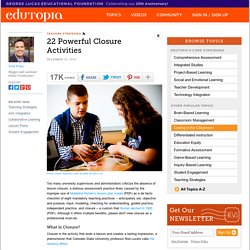
Although it offers multiple benefits, please don't view closure as a professional must-do. What Is Closure? Closure is the activity that ends a lesson and creates a lasting impression, a phenomenon that Colorado State University professor Rod Lucero calls the recency effect. Teachers use closure to: Check for understanding and inform subsequent instructionEmphasize key informationTie up loose endsCorrect misunderstandings Students find closure helpful for: Creative Closure Activities. Steg för steg. Naturvetenskapligt ämnesspråk som räknas. Will video kill the lecturing star?
Pea_2077_37829_1. Fish Bowl. Www.suttontrust.com/wp-content/uploads/2014/10/What-makes-great-teaching-FINAL-4.11.14.pdf. On-the-Spot Support: Using the Scaffolding Technique in Your Teaching Approach. When you think about scaffolds, you probably visualize the structures used during construction to support workers and materials.
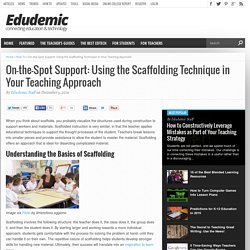
Scaffolded instruction is very similar, in that the teacher applies educational techniques to support the thought processes of the student. Teachers break lessons into smaller pieces and provide assistance to allow the student to master the material. Scaffolding offers an approach that is ideal for dissecting complicated material. Understanding the Basics of Scaffolding Image via Flickr by ilmicrofono.oggiono. Stödinsatser: extra anpassningar, särskilt stöd och åp - exempel. Välkommen till Acedu! The Importance of Asking Questions to Promote Higher-Order Competencies. Irving Sigel devoted his life to the importance of asking questions.

He believed, correctly, that the brain responds to questions in ways that we now describe as social, emotional, and cognitive development. Questions create the challenges that make us learn. The essence of Irv's perspective is that the way we ask questions fosters students' alternative and more complex representations of stories, events, and circumstances, and their ability to process the world in a wider range of ways, to create varying degrees of distance between themselves and the basis events in front of them, is a distinct advantage to learning. However, Irv found that schools often do not ask the range of questions children need to grow to their potential. In this column and the next, using the story of Goldilocks and The Three Bears, we can learn from Irv about how to improve our question asking so that students learn more from text and from the world around them.
Tankesmedjan_rapport7-low-färdig-version.pdf. Bra lärare. Uttrycksformer för upptäckare - fördjupning. Att utvärdera sin undervisning och synliggöra förbättringsområden. 20 Questions To Guide Inquiry-Based Learning. 20 Questions To Guide Inquiry-Based Learning Recently we took at look at the phases of inquiry-based learning through a framework, and even apps that were conducive to inquiry-based learning on the iPad.
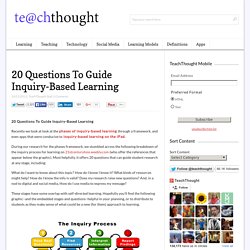
During our research for the phases framework, we stumbled across the following breakdown of the inquiry process for learning on 21stcenturyhsie.weebly.com (who offer the references that appear below the graphic). Most helpfully, it offers 20 questions that can guide student research at any stage, including: Teaching Students to Embrace Mistakes. Svensklararensi_-20254891.pdf. Final exams vs. projects – nope, false dichotomy: a practical start to the blog year. Let’s begin the new year with a nuts and bolts educational issue.
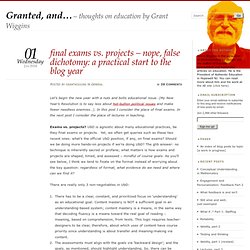
(My New Year’s Resolution is to say less about hot-button political issues and make fewer needless enemies…). In this post I consider the place of final exams. In the next post I consider the place of lectures in teaching. Exams vs. projects? UbD is agnostic about many educational practices, be they final exams or projects. Awesome Chart for Teachers- Alternatives to Traditional Homework. Age of Distraction: Why It’s Crucial for Students to Learn to Focus. Digital classroom tools like computers, tablets and smartphones offer exciting opportunities to deepen learning through creativity, collaboration and connection, but those very devices can also be distracting to students.
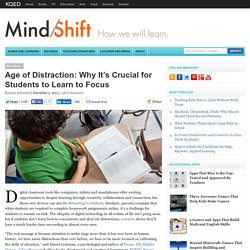
Labels limit learning: James Nottingham at TEDxNorrkopingED. Konstruktiv länkning.
Forskning. Rubrics for Teachers - Assessment. Learn more about our Online Courses, Online Certificate Programs, and Graduate Degree.
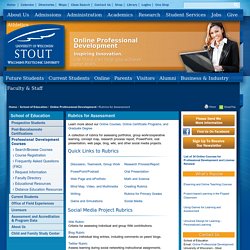
The factlab - Where facts become your knowledge. Develop a generative topic title. Take any topic or project you have in your current curriculum and think carefully about the titles you have given them.
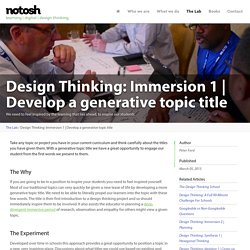
With a generative topic title we have a great opportunity to engage our student from the first words we present to them. 9 Reasons Why Failure Is Not Fatal. Failure.
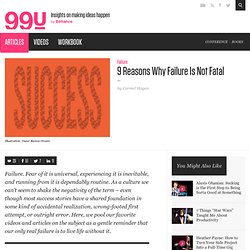
Fear of it is universal, experiencing it is inevitable, and running from it is dependably routine. As a culture we can’t seem to shake the negativity of the term – even though most success stories have a shared foundation in some kind of accidental realization, wrong-footed first attempt, or outright error.
Skolgrejer.